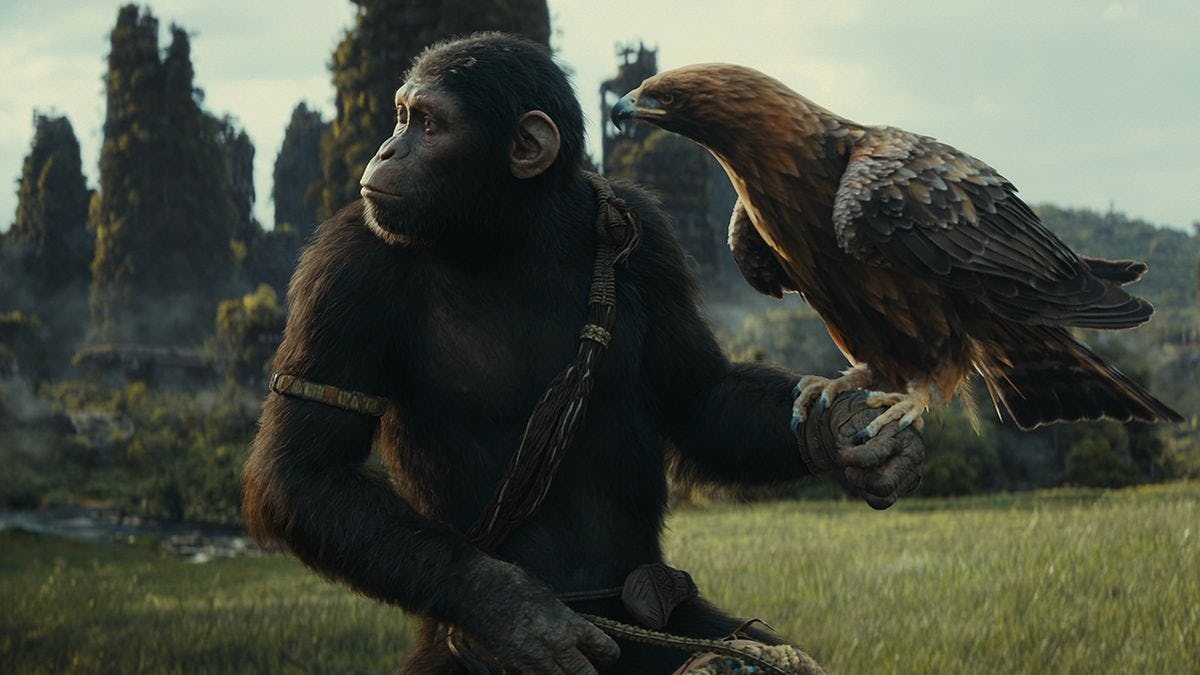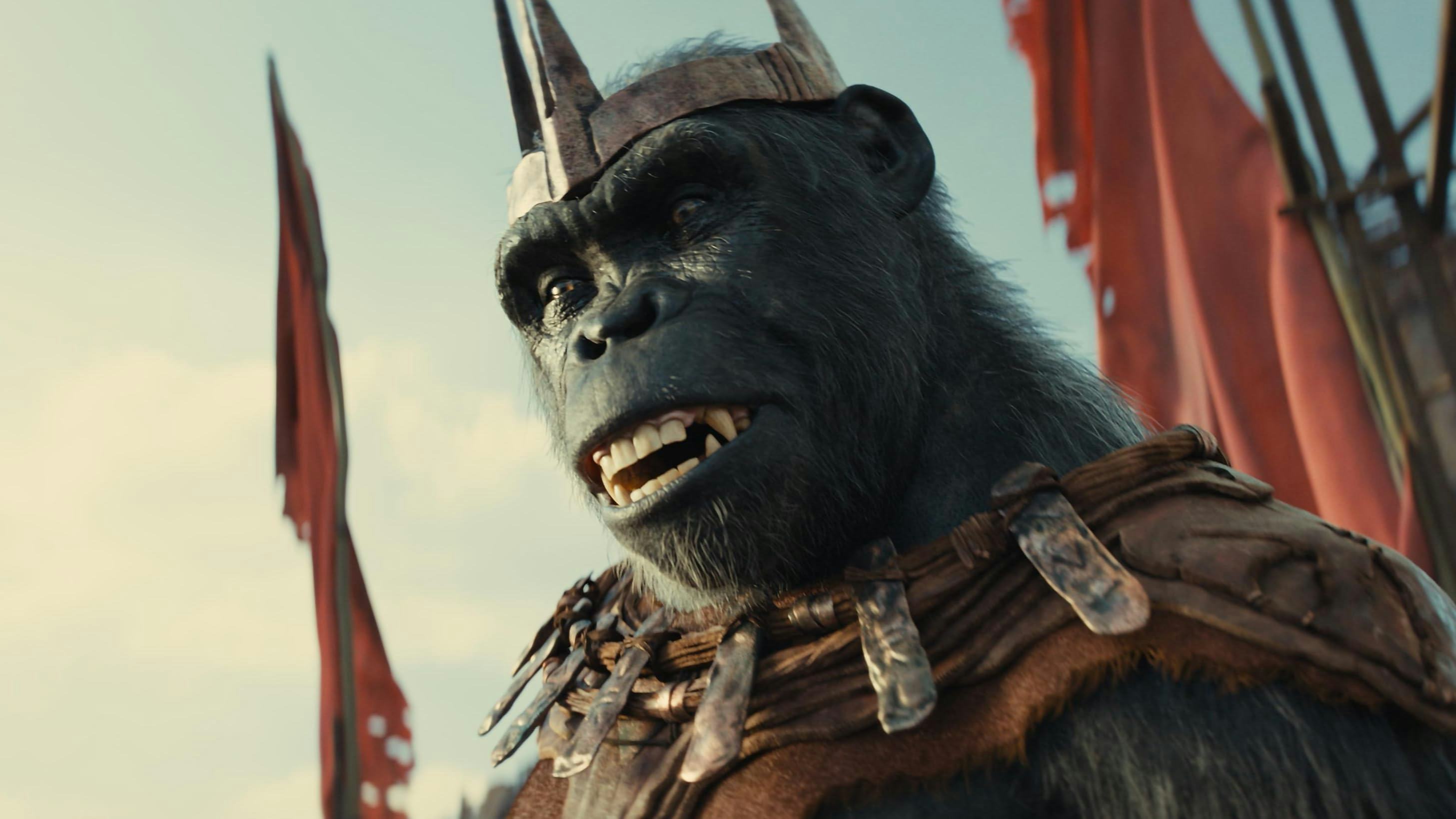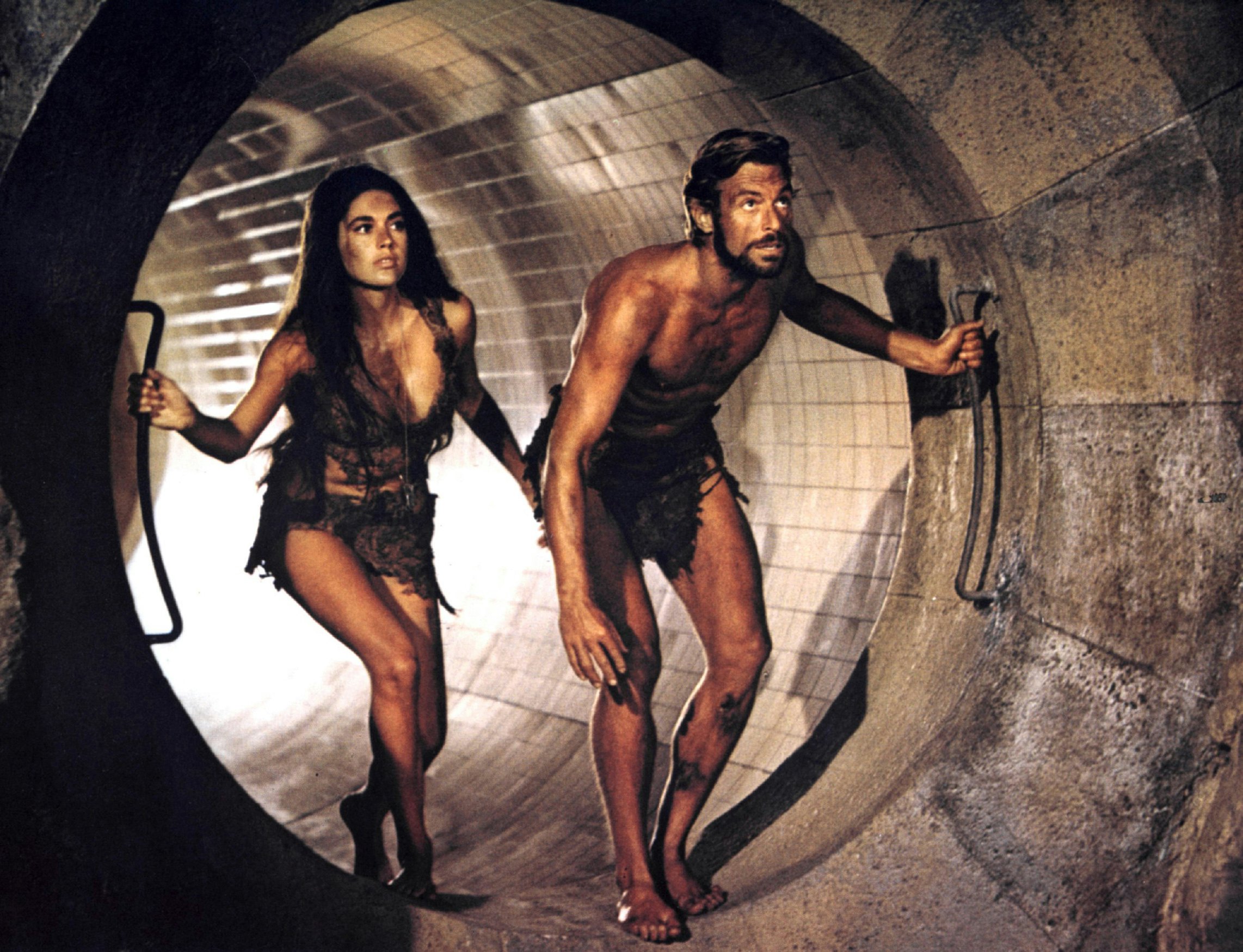
The future distant future of Planet of the Apes is hazy. In the first two classic films, Taylor and Brent travel from the relative present of the 1970s to a period in the future — 3978 or 3955, depending on whether you’re watching the first film or the sequel Beneath the Planet of the Apes. The subsequent sequels — Escape from, Conquest of, and Battle for — the Planet of the Apes, revealed a timey wimey paradox at the center of the Apes mythos. In the original films, the future world of the first two films actually bootstrapped the past thanks to Caesar (Roddy McDowall) actually having parents from the 3900s.
But ever since the 2011 reboot Rise of the Planet of the Apes, the franchise has been a little more straightforward with its timeline. And now, the fourth film in that continuity — 2024’s Kingdom of the Planet of the Apes — will be set nearly 300 years after the previous film, 2017’s War for the Planet of the Apes.
But what does that time jump mean? And, is it possible that the reboot series is actually rebooting all over again?
New Apes timeline, explained

Starting with Rise of the Planet of the Apes, the “Caesar trilogy” of films covered the years 2011 to 2028. So, essentially, from the spread of the fictional pandemic to Caesar’s fatal sacrifice, the newer Apes films don’t cover nearly as many years as the older films. Even this 300-year jump to the future post-Caesar is small relative to the thousands of years covered by the older films. And yet, because this is a bigger jump than we’ve seen in the newer films, we could be in a situation where a lot of the canon from the previous trilogy matters less than we think.
In a new story in Empire, it’s made clear that the new lead ape, Noa (Owen Teague), will be put on a path of discovery, to recover the teachings of Caesar that the current ape leaders have apparently forgotten.
A low-key Apes reboot
In the same Empire article, director Wes Ball says that Kingdom of the Planet of the Apes could be a new trilogy, and although it subsists in the same canon as the previous films, the 300-year gap is not for nothing. “Those last three movies were about the end of something,” he said. “They were about the end of humanity... and we thought, ‘From the ashes of those previous movies, we’re gonna grow a new tree to climb.’ This movie is very much about the beginning of something.”
Visually, the photos and trailers for Kingdom of the Planet of the Apes make it look a lot more like those first two classic films than any of the previous movies ever did. And while this movie clearly isn’t literally trying to align itself with the old-school timeline, the fact that it looks closer to those older films could indicate we’ll end up in a future not unlike the 3900s. And if that happens, we could very well be dealing with a future in which the entire Earth is destroyed. Yes, the Apes films are the rare sci-fi films that manage to obliterate the entire planet in the second movie, and still manage to three more sequels.

Unlike the 2001 Tim Burton remake, Kingdom of the Planet of the Apes isn’t throwing any of the canon baboons out with the bathwater. This is very clearly a continuation of the films that Andy Serkis made so special. But, because Serkis isn’t in this movie, Kingdom doesn’t have any baggage of being a direct sequel to the previous films. Instead, it exists in a strange, rare space of big sci-fi franchise films; a fresh start, with plenty of continuity to play with.
Should longtime fans of the older movies be expecting a bunch of 1970s Easter eggs? With this hypothetical trilogy, it already seems possible in a way that wasn’t really the case with the last three movies. The monkey business of Planet of the Apes will never be straightforward, but perhaps, this new series of films will feel like a relatively clean break, heading back to a retro future.







